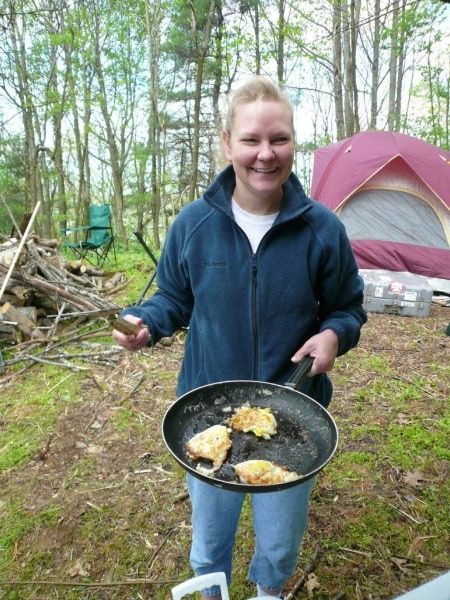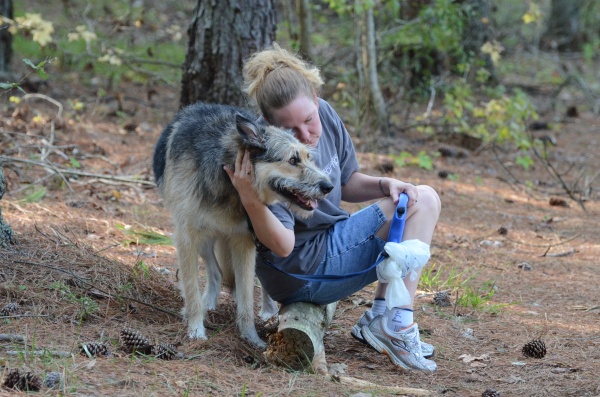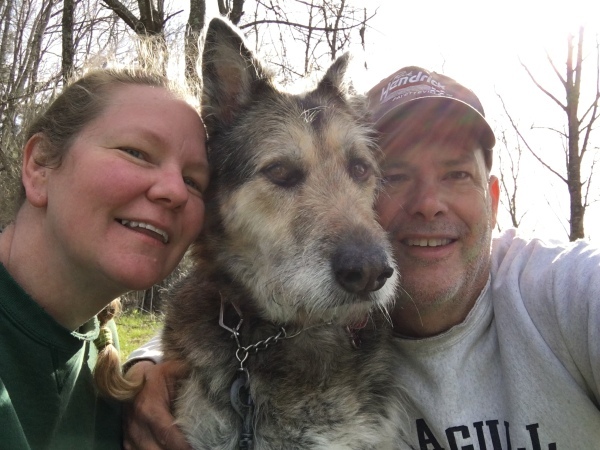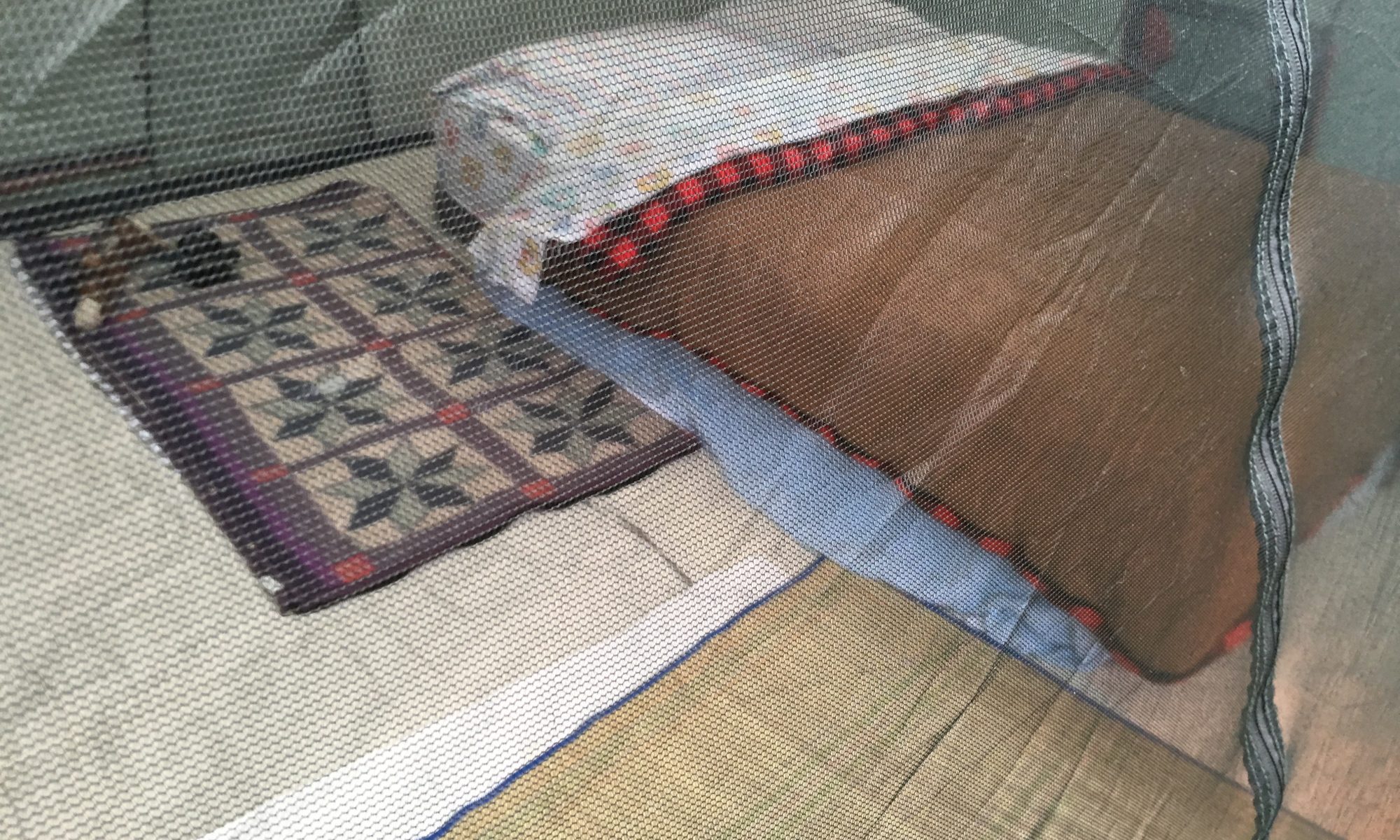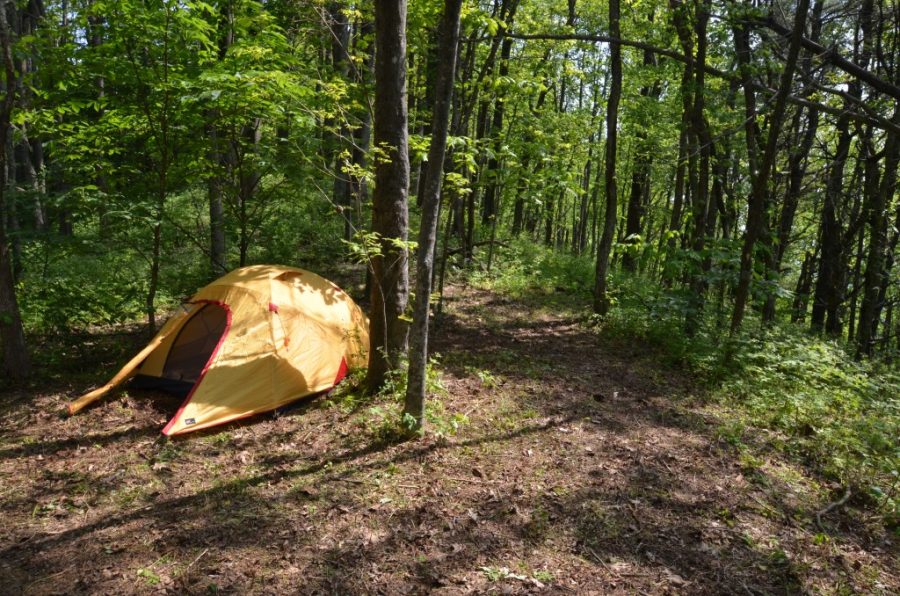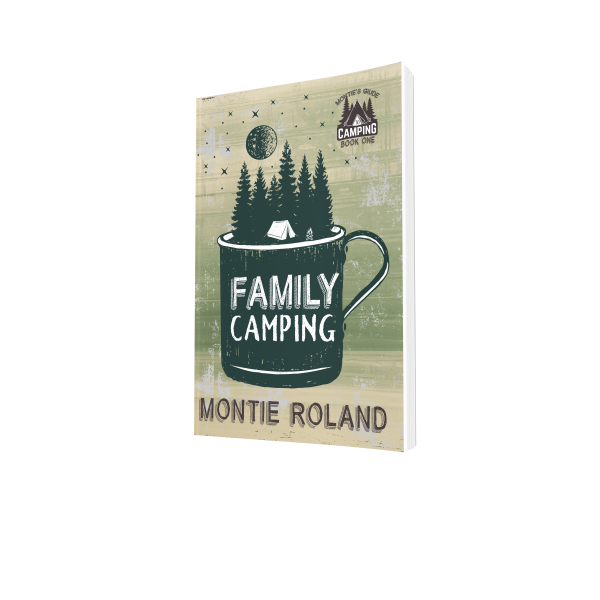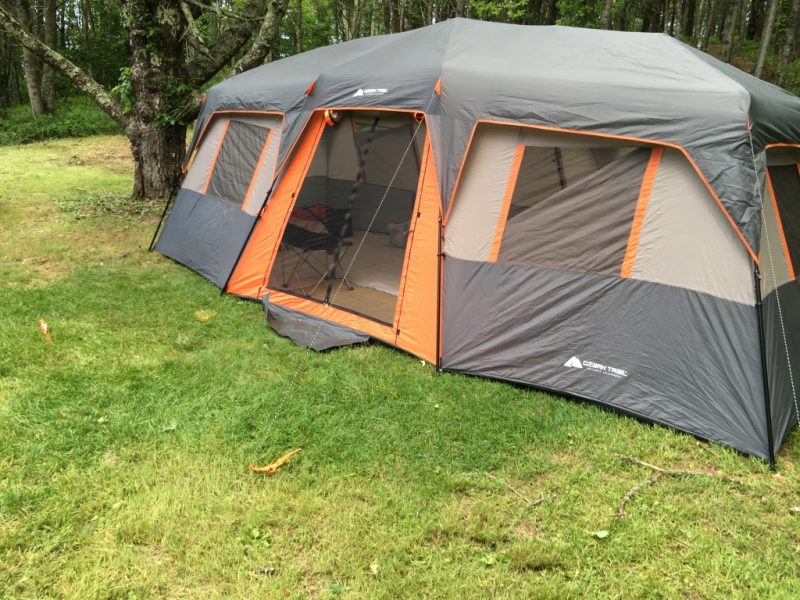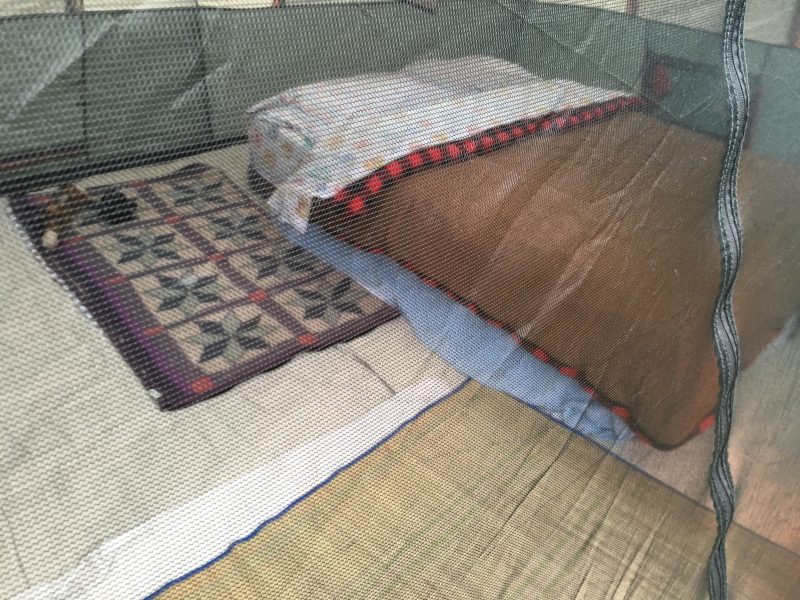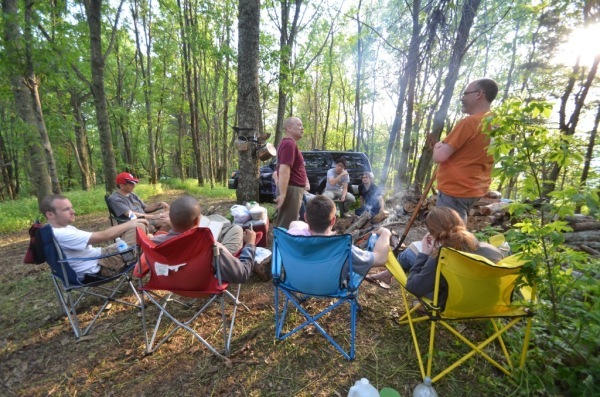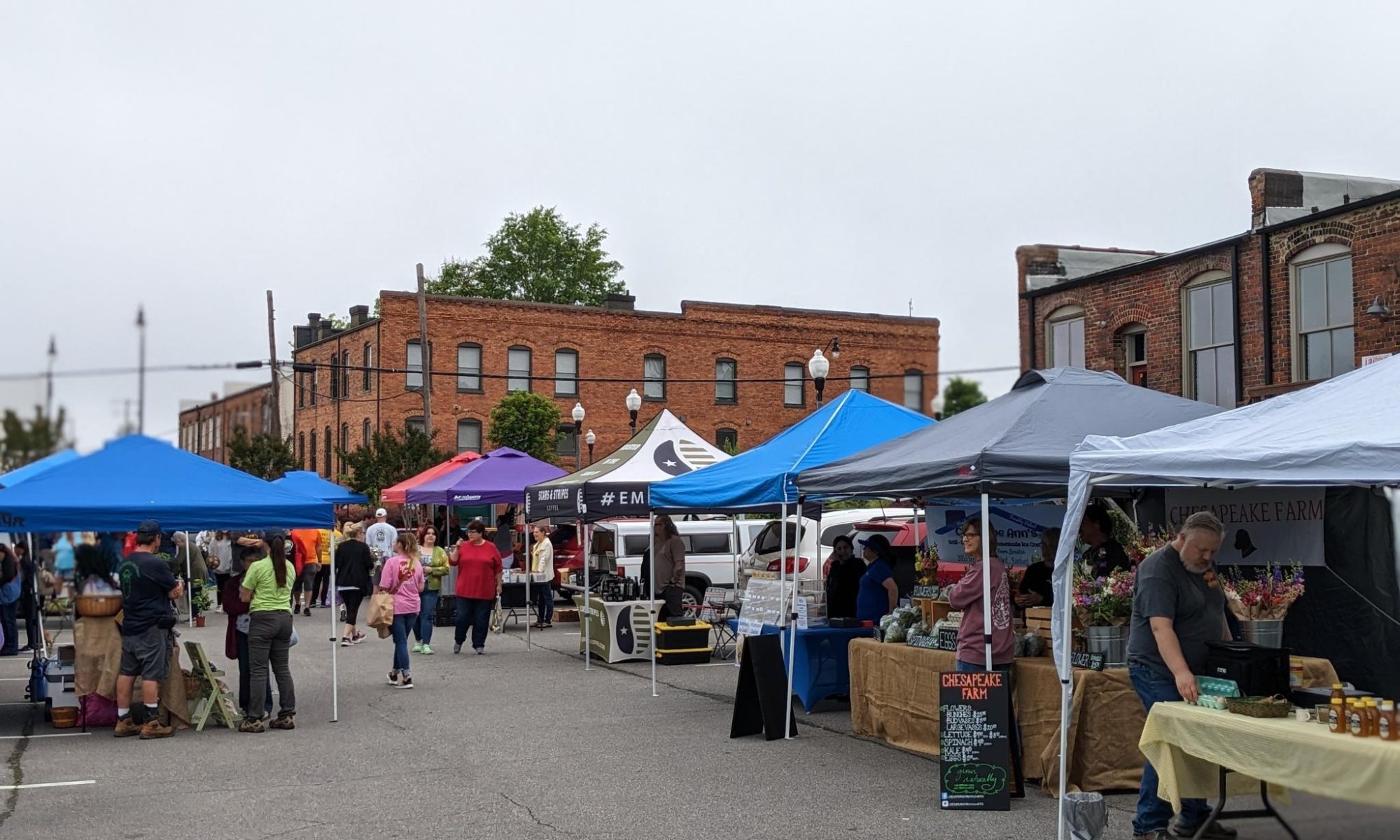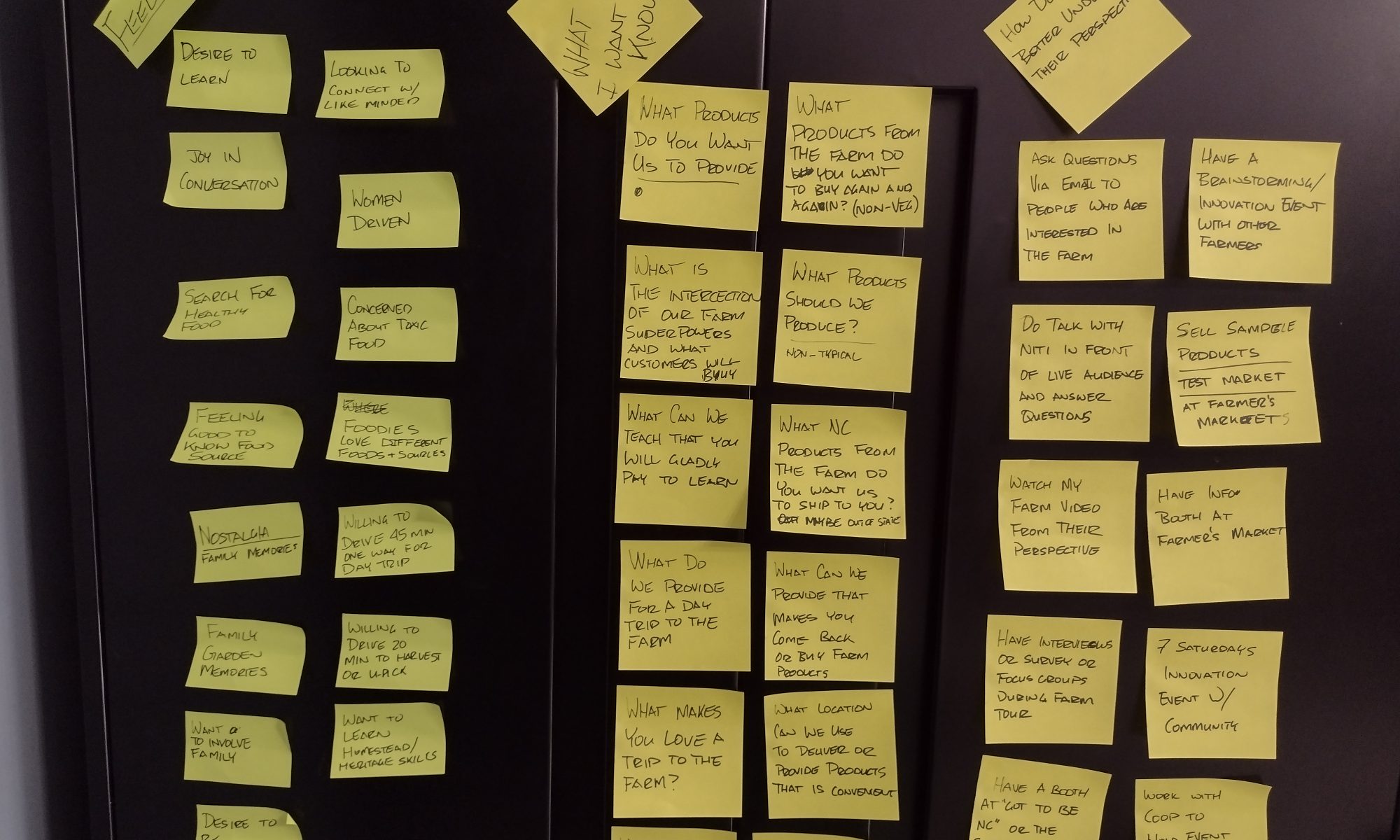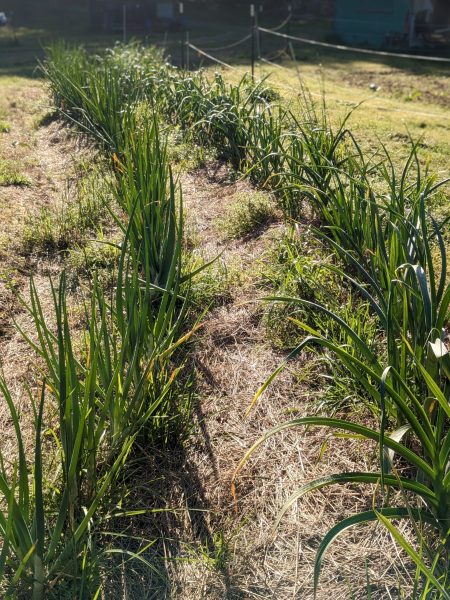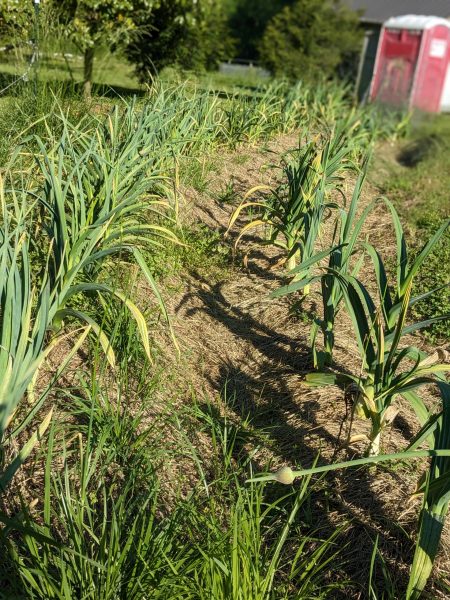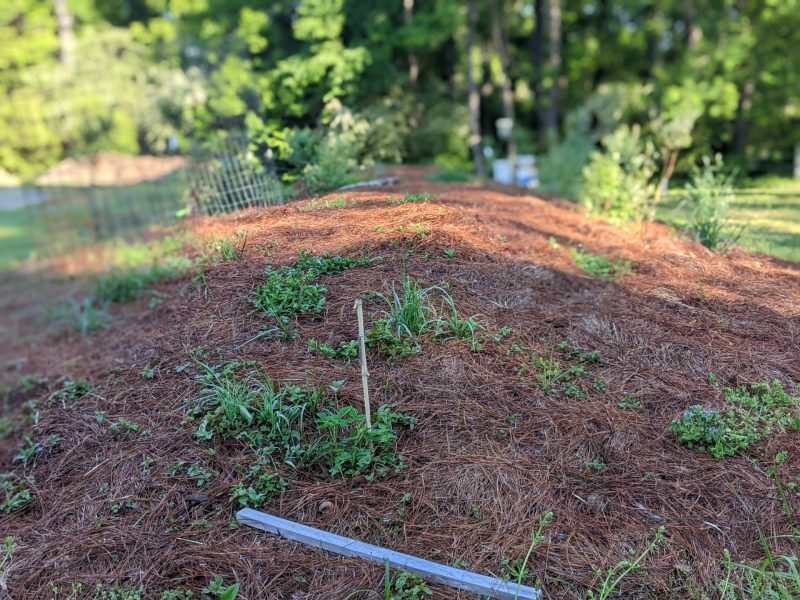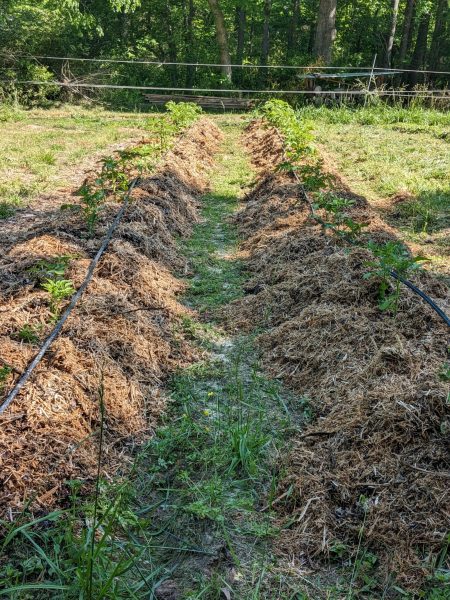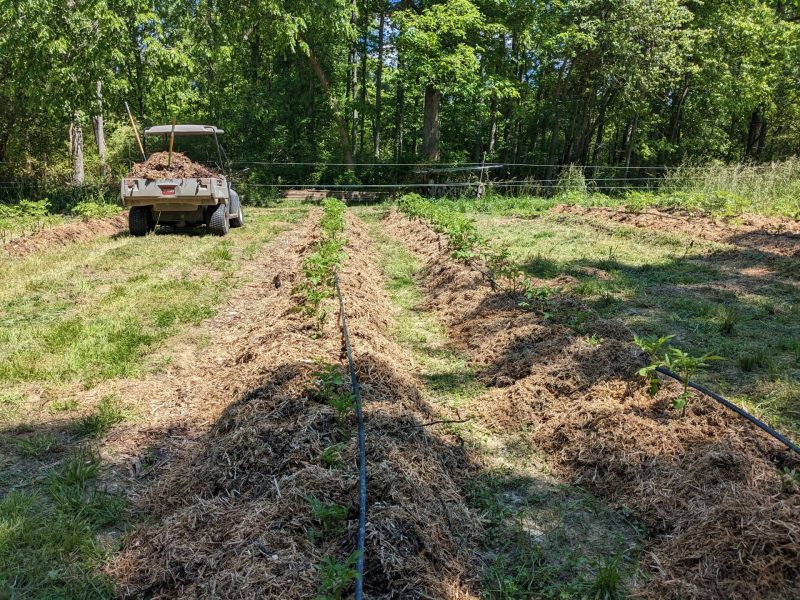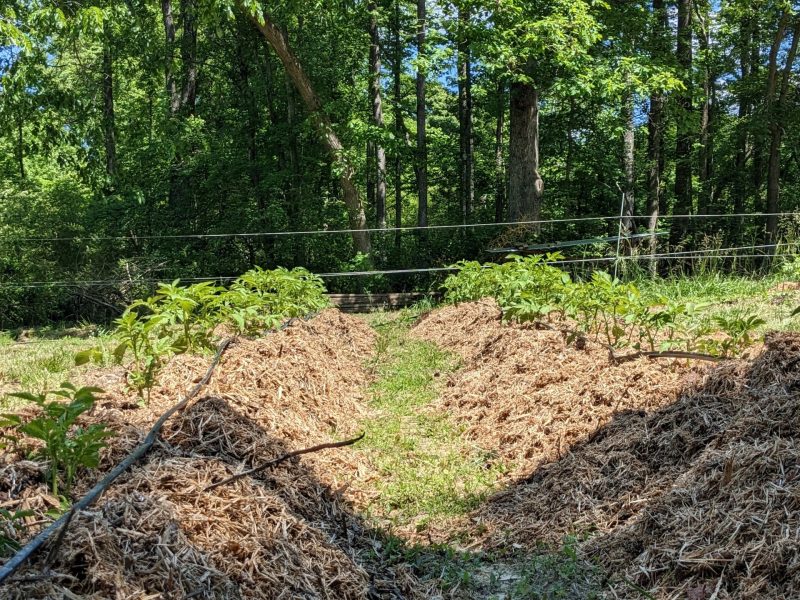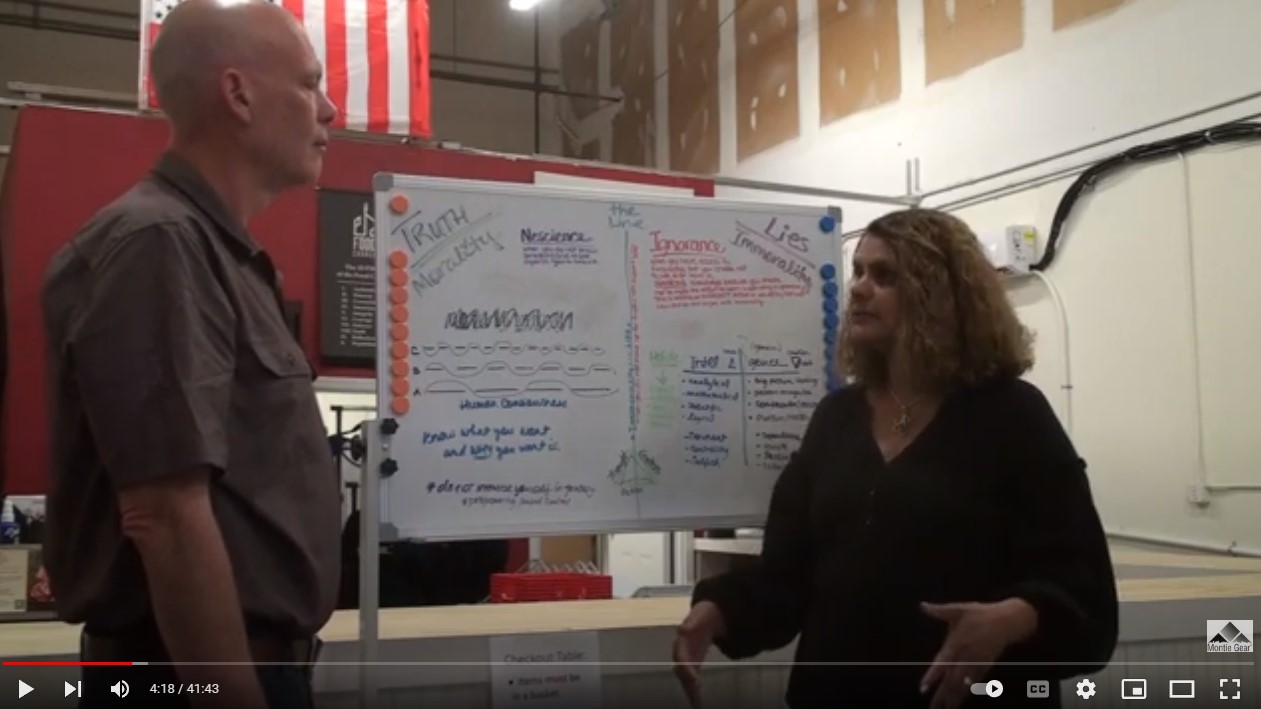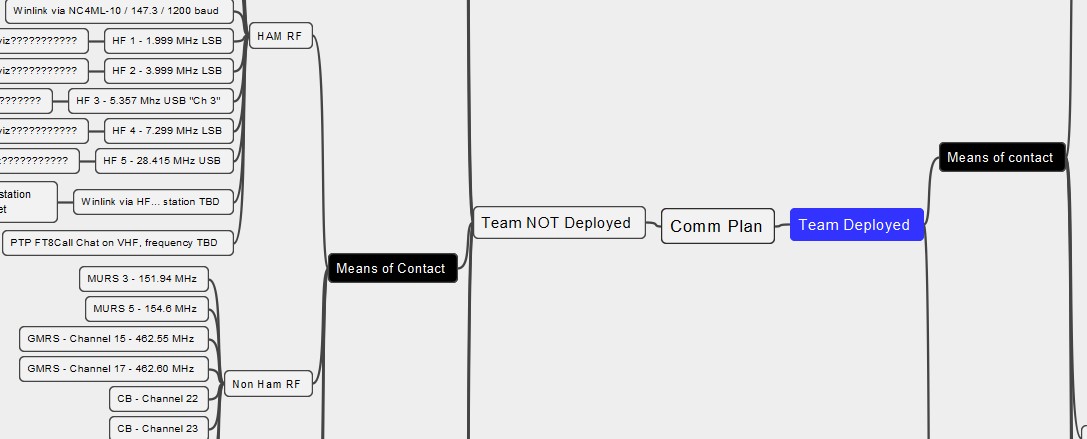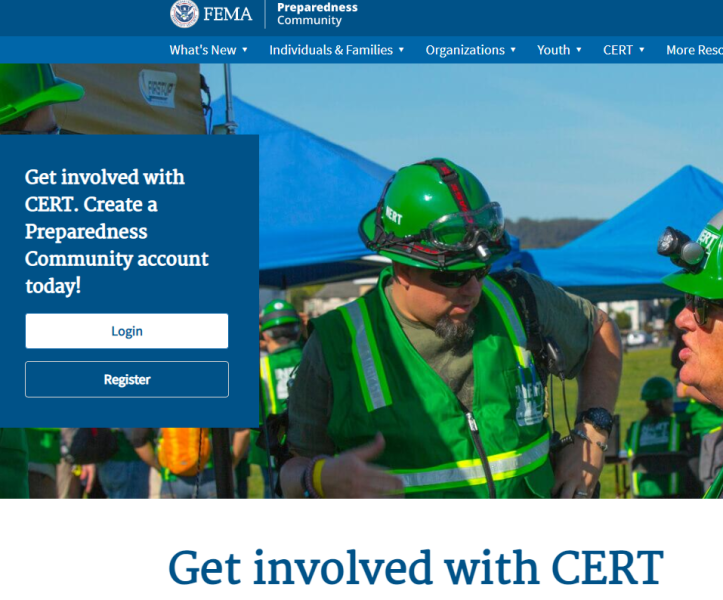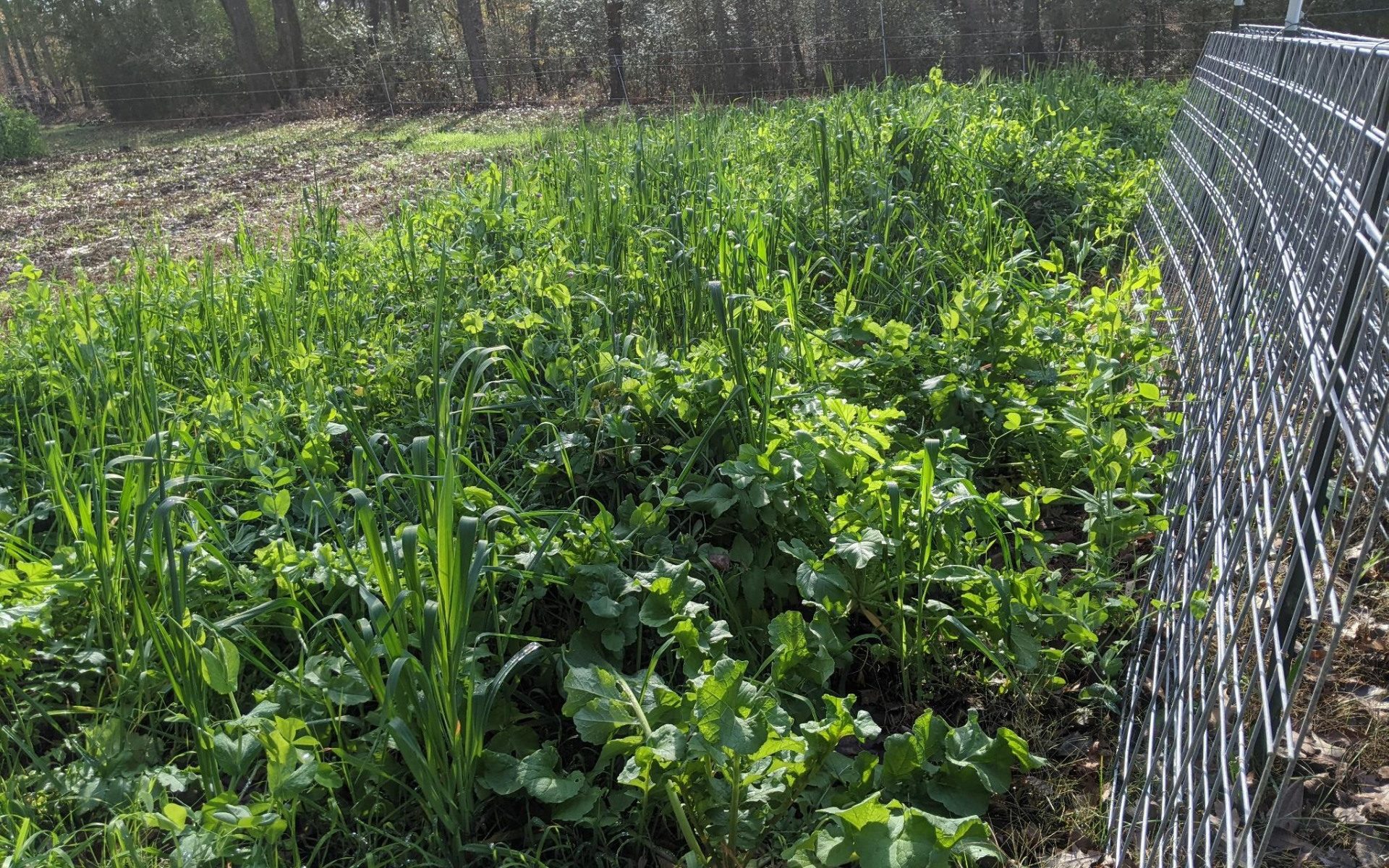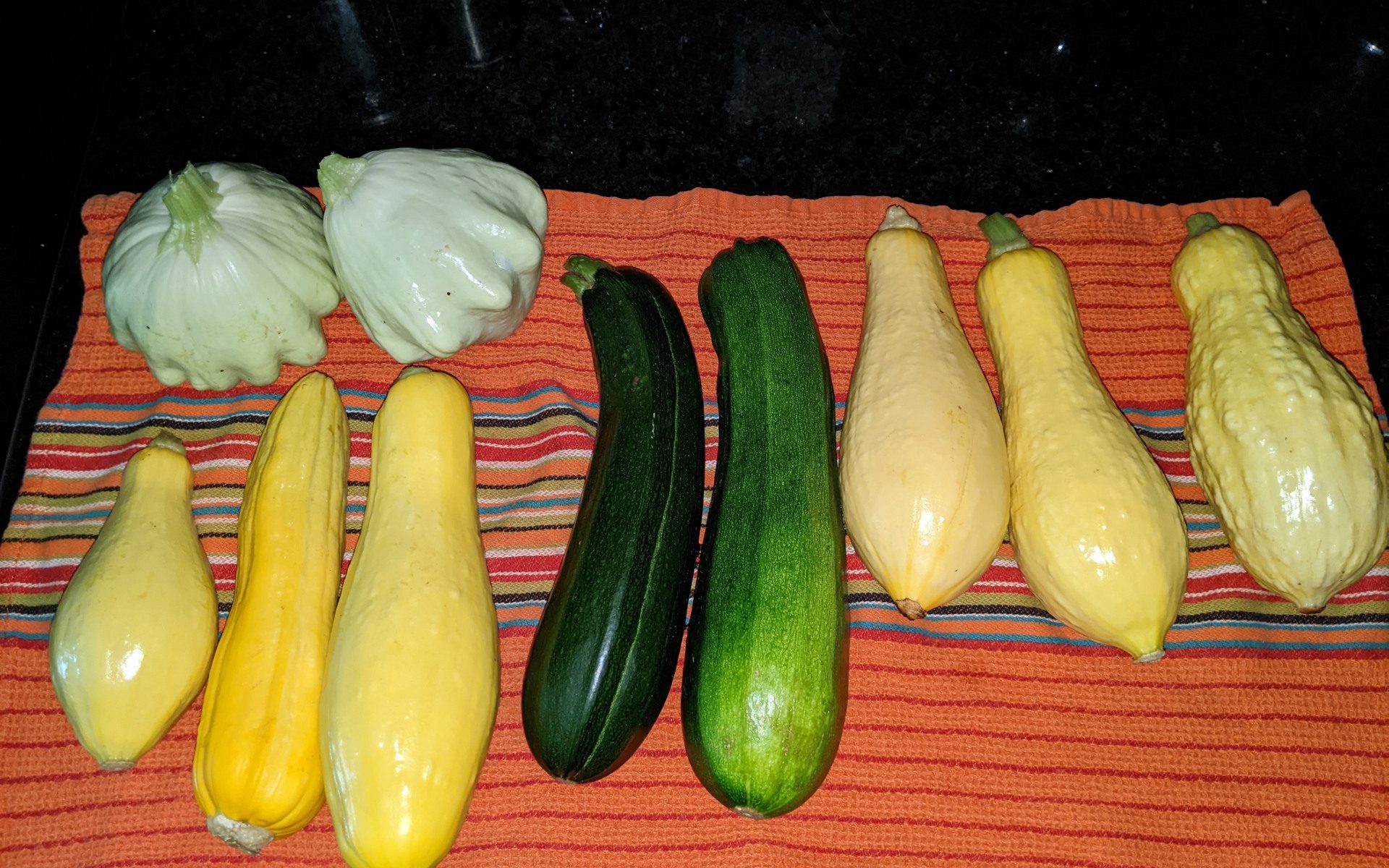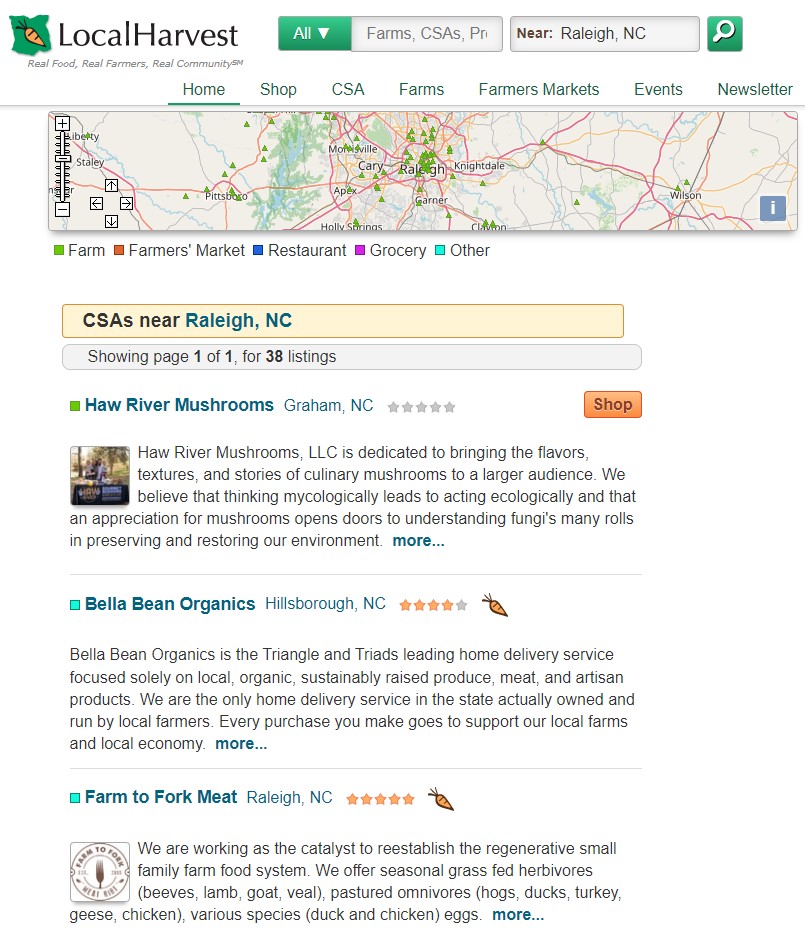While camping, one thing you’ll end up developing are traditions. Some are big, some are gigantic, some are small, but all are valuable.
How to build traditions.
Over time, enjoyable repeated activities can grow into traditions. Or, traditions can happen by accident. Something may work well once, so you repeat it. By the tenth time you realize you have a tradition. Keep in mind that when you do something that is comfortable and enjoyable, you’ll keep doing it. You may find that it is important to your family to go camping on a certain date or a particular place because it brings back special memories and there is an expectation that you’re going to make more good memories—that’s a tradition.
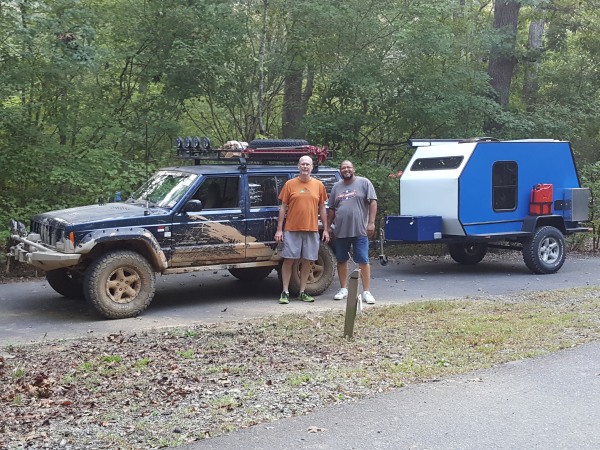
Repetition builds traditions.
I’ll give you an easy example. There’s a restaurant in Winston-Salem, TJ’s Deli, that Connie and I tend to stop at when we’re headed for the mountains because it’s on our way. They have awesome, homemade sandwiches and to-die-for fried mushrooms. Now, don’t get me wrong, this isn’t a fancy place, more like a hole-in-the-wall, but the draw is the food and the tradition. We order the same meal every time, a gigantic sandwich and fried mushrooms on the side—I always save some of the mushrooms for the remaining drive. Even when we travel with friends, we stop there. Every time.
Is having a meal partway to your destination part of camping? No, but it can be part of the entire camping experience. When we head west to camp, we usually work our departure around stopping at TJ’s Deli for a meal, which we both look forward to. The detour helps break up the trip and I think the tradition is nifty.
Another tradition we have is camping at Troublesome Gap every Memorial Day weekend. We are so predictable that friends call to ask if we are going this year. Those calls made me realize traditions can even spark a camping interest with friends.
Tradition looks different to different people.
You may never go to the same restaurant twice, but you may have a tradition of stopping at some restaurant on your way to the camping site. You may never camp at the same location, but you may set your supplies up in the same order every time. Or you’ll always be sure to have a campfire. Or roast marshmallows.
You could lean towards more open spaces because you like to throw your daughter up in the air in the middle of a grassy field. Or perhaps you like to take a morning walk right as the sun is beginning to rise and dew still licks the grass blades. Maybe one of your kids is an early riser who likes to get up with you and help build the morning fire, which is a teachable moment by the way.
Priceless moments.
You guessed it, when a tradition is created, most likely a priceless moment will as well. Look for those traditions, spur them along, and allow them to happen. Some occur organically. Some we purposefully build. You can’t force them, but you can encourage and grow and build them.
Keep up with traditions.
When camping with others, they’re watching. So if you always have a ham sandwich with onions the second day for lunch or you always have s’mores the first night over a roaring campfire, then your family may be disappointed when the activity doesn’t happen. Usually these traditions are special camping experiences, not something you normally do at home. Some traditions are hard and fast, and some of them aren’t. You’ll just have to work that out depending on your family.
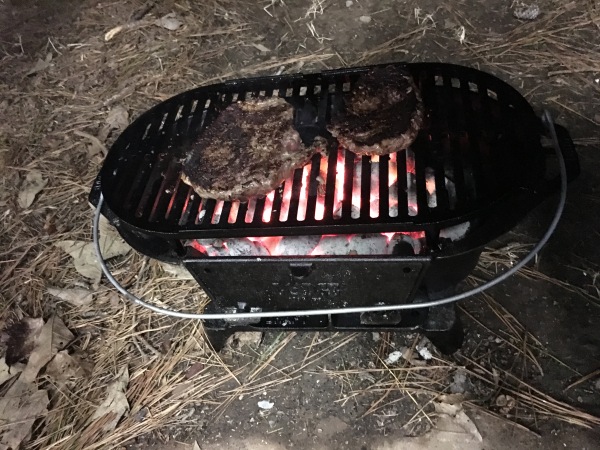
Anyone can start a tradition.
Sometimes you’ll do the most obscure activity with your kids, maybe throwing knives into an old stump or forging your own path in the woods. It may not make an impact on you, but your child doesn’t forget and wants to do the same activity the next time you go camping. It’s usually the simplest things.
Perhaps you take your family on a spectacular hike and see breathtaking scenery, but the thing your kids remember from their day is the mound of soil behind the apple tree they created dirt castles from. Whenever you get the chance to interact with your children, do so. Even if it’s making dirt castles under a canopy of low-lying tree limbs. Those are the moments to grab and revel in.
If you are single and reading this book, then you can still build great traditions while camping with friends or family, or going on a solo trip. If you are divorced or widowed, a camping trip could be just the thing you need to get out of your day-to-day rut and create wonderful new experiences. While I’m spending a lot of time talking about family camping, there are still many ways to enjoy a trip while single, divorced, or widowed.
Be flexible.
If you’re into schedules, that’s great. But keep in mind, if someone in the family is enjoying an activity, put that hike off for an hour. If there’s rain in the forecast, consider doing an activity closer to the campsite. Agendas don’t matter, the memories and time together does.
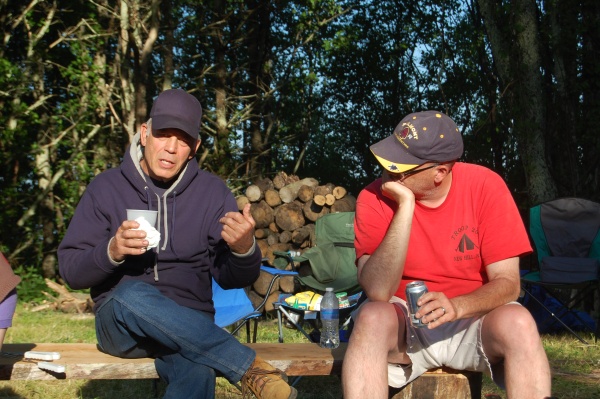
Stories grow over time.
Kids remember events. Some of those stories grow like fish that you caught. You know the story of an angler who catches a twelve inch fish and by the time he tells the story about six times, its two feet long. Well, sometimes memories are that way too. Sometimes they’re precise; other timess they’re not even close. But, what matters is the memory.
I’ll give you an example that’s not camping related. When one of my daughters was in elementary school, I began going to school and having lunch with her once a week. Kids won’t be young forever, in fact there may come a time when they don’t want to spend much time with you. Anticipating this, I made a point of making that weekly meal a priority. A number of years into this tradition, my daughter noted I’d been coming to have lunch with her every week since whatever grade. She enjoyed it, I enjoyed it, and so it remained a tradition, a thing between just the two of us. She valued the time I carved out for us. Over the years when she’d tell the story, she’d share we’d been lunching together longer than we actually had. Should I correct her? No. Am I trying to encourage her to be inaccurate? No. I guess the thing is it pleased her that we had lunch together once a week. And so, it was a big deal that became a bigger and bigger part of her life. And her nailing down exactly when we started doing it really didn’t matter. What mattered was how appreciative she was because we were making lifelong memories.
Interests change.
Your kid’s interests will change over the years. Be flexible. Something that is important to him this year may be boring four years from now. This means your camping trips may change. The important thing is to give your kids attention, relate to them, and listen to what they want.
At some point you or your kids will look back and be thankful you hiked every waterfall trail in North Carolina, or made s’mores every night around the camp fire, or took the time to find a thick enough branch to make a walking stick the first night of each trip. Those were traditions and you enjoyed yourselves and made memories. But, there may come a day when your kids decide they’d rather spend time with their friends and that’s okay. You need to roll with it. You’ve spent years developing a set of experiences and memories that you can share and remember forever.
Continually ask questions and listen to see what the people in your family want to do this year and next. If we can be flexible and go with the flow as interests and needs change, then we have the chance of keeping the tradition of camping alive and the opportunity for creating more memories. In fact, a lifetime of them.
Also keep in mind that your interests and capabilities change. Maybe you used to be able to hike ten miles a day when you were younger, but now perhaps four is your max. Or maybe you used to hike only difficult trails, but you’ve learned that moderate means success. On the other hand, if you want to push yourself then take a long hike. Maybe you used to hike moderate trails, but after hiking a challenging trail you realized you have the capability to hike longer and more difficult trails, so push yourself and revel in that accomplishment. If you are camping solo, then this may be a good time to enjoy the fruits of your physical fitness efforts with a long challenging hike. Alternatively, taking your athletic, teenage kids, on a difficult hike may be something they really enjoy. Just keep your capabilities and stamina in mind so everyone, including you, can enjoy the physical challenge.
Quality time.
Whether it is a yearly guy’s trip, or a monthly trip with young kids, or maybe a romantic getaway with your wife, the important thing is to be free from distractions and spend quality time with loved ones. If you have more than one child, each parent should try to spend concentrated time with individual kids. You may find your children consider this quality time a tradition. Now, note that tradition for traditions sake is worthless, unless you are accomplishing something important.
Traditions are usually simple.
Many times traditions aren’t bound up in spending some ridiculous amount of money, but are instead simple. It may be somewhere you ate, and spent the majority of the meal laughing. It may be playing in the mud behind the apple tree. It may be hiking a specific trail that you’ve hiked every year for twenty years.
For example, if your wife or child is asking to go on a particular hike again, you need to figure out if they want to go on a general hike or a specific trail and for what reason. What do they really want? What’s important to them? Ask questions and dig. Because they may be looking for the smiles, laughter, and love they felt on a past hike. Maybe it was just you and them on that trail. Perhaps Mom wasn’t there, or maybe Dad wasn’t there, and was just the two of y’all. That’s the moment you’ll realize there is a new tradition of going on this hike, perhaps just the two of you. And it’ll be a special time. Then you make your plans based on this information and how you can make it work.
Don’t try to please everyone.
Depending on the age of your children and how many you have, satisfying only one for the next ten minutes might be your only option. Sometimes everybody’s in tune and sometimes they’re not. In those challenging moments, you may want to break up your group. If you have two children with two totally different interests at the moment, maybe Mom goes with one child and Dad with the other. Breaking that up gives you the opportunity to pursue those varied interests. And there again, build those great memories. But, maybe you have a situation where everybody wants to do something together. You can figure it out even if it’s not always easy.
Plan, but don’t plan.
One tip I suggest is make a list of activities available for your location. If you don’t plan, but instead wait until the last second, generally whatever you wanted to do won’t happen. Say there’s a national forest right down the road; maybe you pack into the car and go there to experience the wonder of it all. Perhaps there’s a body of water close by so you get into a canoe or a row boat or a paddle boat. That can be fun as well. Keep in mind though, you may have camping trips where what everybody wants to do is sit by the fire and relax. And all of a sudden, it may explode into a hiking trip, and then they go back to sitting by the fire. So, planning is great, but also be flexible and see what happens. But, don’t forget the simple things like running around in the woods to just explore. You can also make a game of the mundane activities that it takes to put together a campsite—like, accumulating stones to edge the fire or gathering kindling and firewood. My point is to make time for organized hikes or rafting trips, but leave gaps available for exploration and inspired play time. Sometimes the simplest and least expensive things are what we remember.
Always keep budget in mind.
I have found it’s not the amount of money you spend; it’s the fun, fellowship, and relationship building. Keep in mind, if you spend money on something and it stresses you out, everyone will pick up on the stress and fun diminishes. Perhaps you can do something that costs close to nothing and still enjoy yourselves. I have found the best trips right-size your activities with your budget, your physical capabilities, and everyone’s expectations.
In the process of talking with folks about this book, I’m not surprised to hear they have such fond memories of camping as a child. I hope you can find your own traditions, and develop those priceless moments everybody will cherish for a lifetime.


